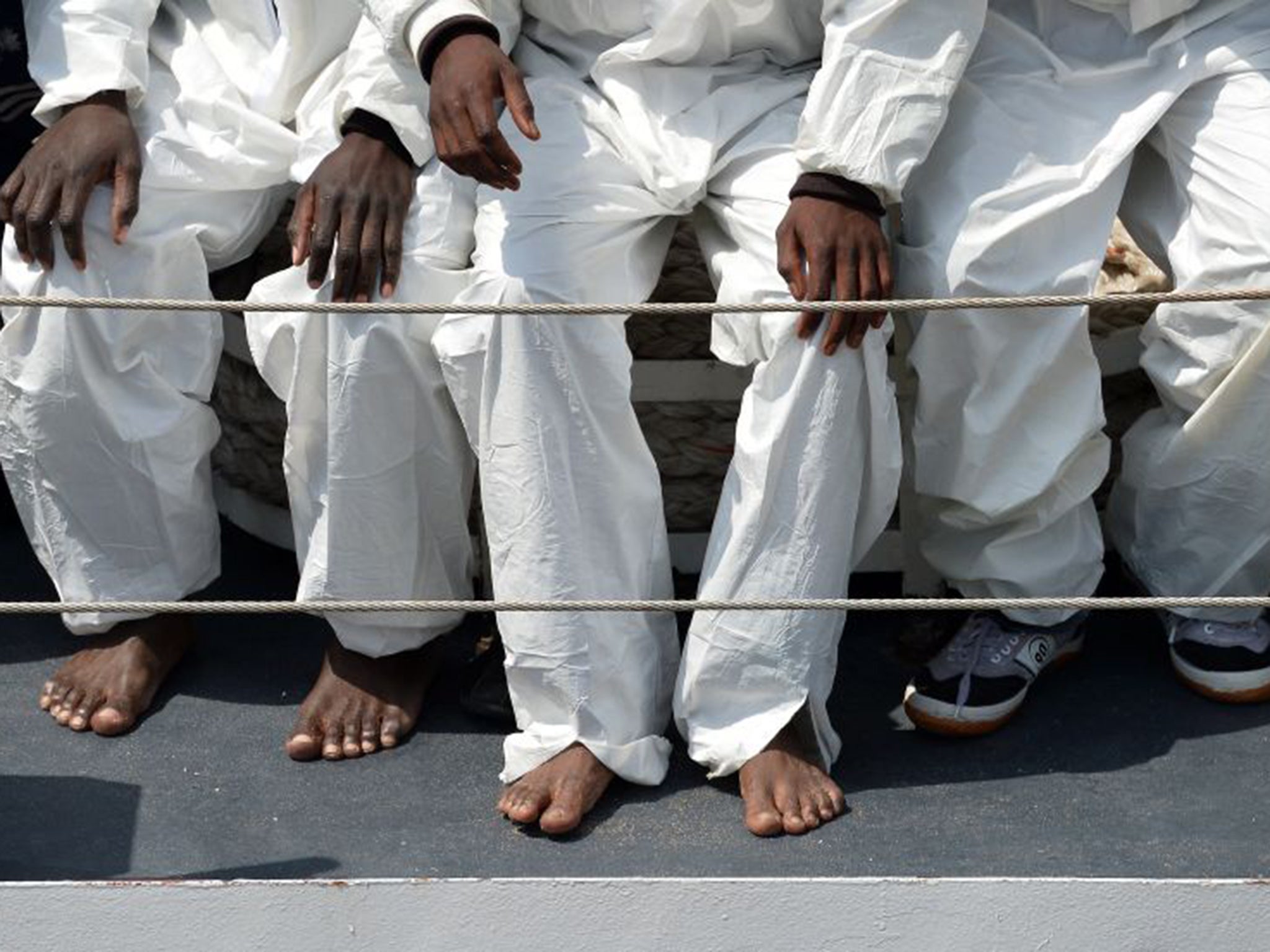Migrant crisis: Those who survive the perilous journey across the Mediterranean face a new problem on arriving in Europe
In austerity-ravaged Italy there is no dolce vita. Jobs are scarce, and Sicily is a place that Italians must leave to find work

Waka is a survivor. This is a young man who says he’s been beaten by prison guards in Libya, kidnapped by people smugglers in Tripoli and then paddled by hand, across the Mediterranean an inflatable dinghy that was shipping water.
“The food was all finished; the water was all finished. Everybody on board thought we were going to die,” he told me.
I met Waka in a pretty piazza in the centre of the Sicilian port of Catania. There are thousands like him here, young African men in search of a better future.
But in austerity-ravaged Italy there is no dolce vita. Instead you see them slouched on park benches or at night huddled in blankets outside the railway station.
Waka is 22 years old and left his home in Gambia last year. His plan, he tells me, was to find work in Libya. Instead, he was arrested and detained; rounded up with many other migrants who crowd Tripoli’s jails. After several weeks, Waka and a group of other young men slipped past their security on a work party outside the prison. That freedom was short-lived. They ran into a smuggling gang who promised to help but instead held them for days in a warehouse near the coast.
“Then, late one night, they put cloths over our eyes so we could not see. They drove us somewhere and when we arrived it was at the sea,” Waka remembers.
“They told us to get into the boat. It was a blow-up. Made of plastic or rubber. There was plywood on the floor and the water came in over that. People didn’t want to get on the boat so they were beaten. I was tired and weak and did not put up a fight.
“The smugglers took us some distance and then they swam back. They told us. ‘You’re on your own now. If you want to go, then go. If you want to stay, then stay and you can die here’.”
In pictures: Migrant boat disaster
Show all 10“No one [in the boat] knew what to do. Some people were crying. Some people were shouting. Those of us by the sides put our hands in the sea and started to paddle.”
Two desperate days later; exhausted, hungry and thirsty; a rescue ship found them. “I thank God,” he says simply. “It was a miracle.”
Into the same port this week, close to midnight, I watched another coastguard patrol ship tie up to the quayside.
The first to step ashore were the few survivors of last weekend’s disaster in which at least 800 migrants died when the boat, in which they were locked below deck, capsized and sank.
With them we could see two men, standing slightly apart from the rest, sharing a joke and a laugh. One was Mohammed Ali Malek, said by the Italian prosecutors to have been in command of the ill-fated boat. The 27-year-old Tunisian faces multiple manslaughter charges.
He protests his innocence and claims that he was merely another of the unfortunate migrants.
In Italy, as elsewhere in Europe, what sympathy there is for the migrants’ plight should not be confused with a willingness to offer them a permanent home. Jobs are scarce here and Sicily is a place that Italians must leave to find work.
Waka spends his time shuttling between an overcrowded reception centre and the town. He’s been warned that his asylum application will take a year. If it’s refused, he can appeal, but every lawyer has 50 clients like him. There will, inevitably, be more delays.
It is all a reality check for Europe’s plans, unveiled in recent days, for a “rapid return” of migrants to their countries of origin.
“In Europe, I would like to go to school and then to work,” Waka says.
A new life in Europe must still seem as distant as Italy’s shore did on that terrible night paddling across the Mediterranean.
John Ray is an ITV News correspondent
Subscribe to Independent Premium to bookmark this article
Want to bookmark your favourite articles and stories to read or reference later? Start your Independent Premium subscription today.

Join our commenting forum
Join thought-provoking conversations, follow other Independent readers and see their replies